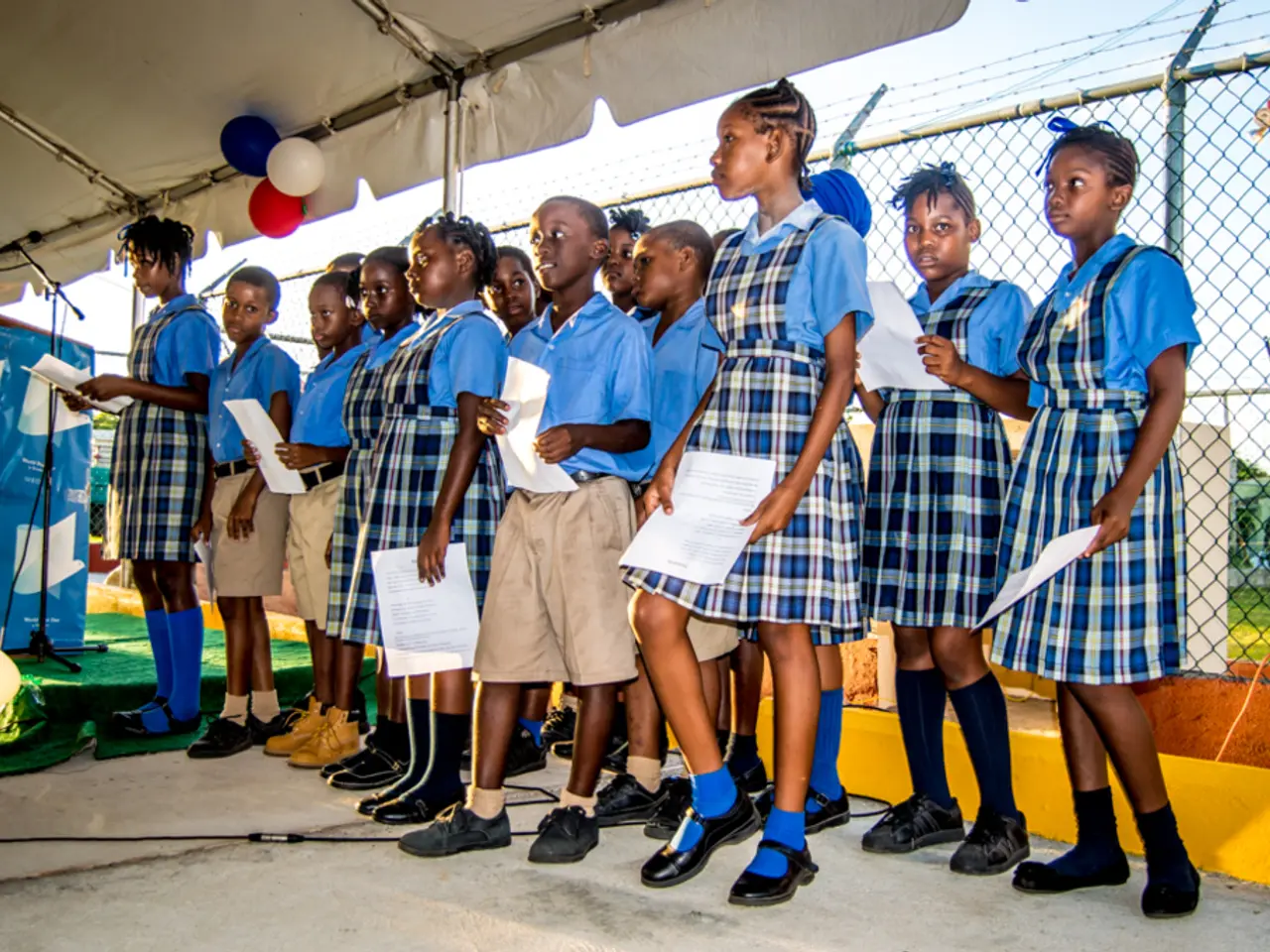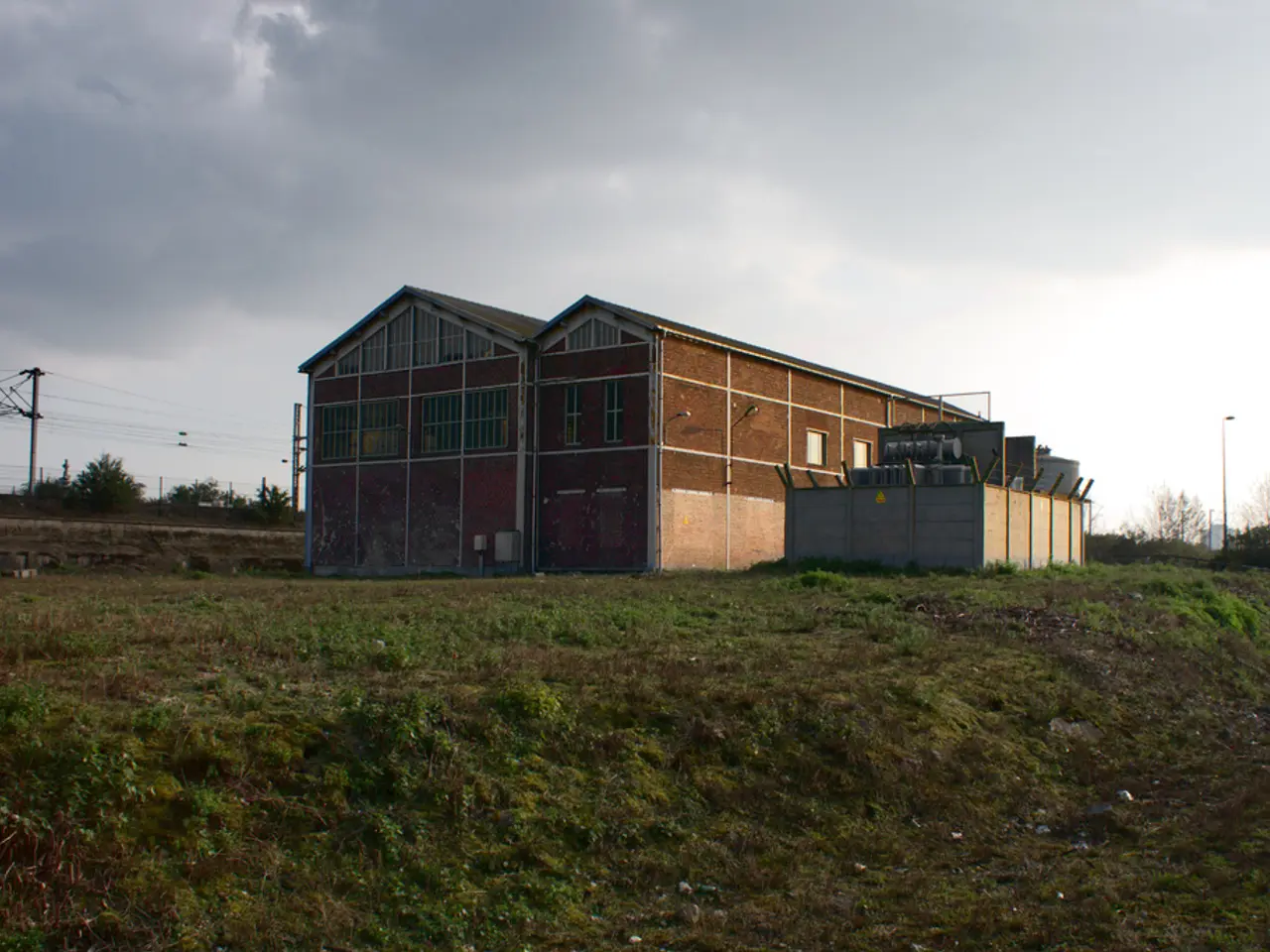Pennsylvania's budget impasse causing school districts and counties to face delayed payments, now reaching a month.
In a month-long impasse, Pennsylvania's budget negotiations have hit a roadblock, causing delays in billions of dollars of aid crucial to schools, human services, and various sectors across the state. The deadlock is particularly impactful for poor and low-resourced districts and county agencies that rely heavily on timely state funding to serve disadvantaged populations.
According to reports, over $2.5 billion in funding is currently held up due to the lack of a finalized budget for Fiscal Year 2025-26. This includes around $2 billion in delayed education payments such as the $1.4 billion basic education subsidy, $255 million special education payments, and nearly $100 million in federal grants to school districts. Human services funding delays amount to about $542 million, primarily affecting county child welfare offices and other service providers like early childhood education programs, health departments, libraries, shelters, and transit agencies.
The delays could potentially impact the financial stability of some Pennsylvania school districts, particularly the poorest ones. District officials have stated that the poorest districts might have to borrow money if aid is delayed in August. Universities, such as Penn State and state-run system schools, will see delays on more than $200 million in aid.
The budget deadlock stems from partisan disagreements. The House has passed a budget plan increasing education funding by $930 million to address previous funding gaps and constitutional concerns, while Senate Republicans oppose it citing concerns over structural deficits and budget sustainability. Without a signed budget, normal state spending authority is constrained, and the State Treasurer may only approve payments with existing legal authority, excluding many new or routine appropriations.
Shapiro and top Republican lawmakers are engaged in closed-door discussions to find a compromise. Budget Secretary Uri Monson sent letters to providers stating that the administration is working diligently to find agreement between the House and Senate and will support organizations during the current situation.
The budget stalemate is not limited to Pennsylvania but is also affecting budget negotiations in Michigan and North Carolina, where Democratic governors are sharing power with Republican legislators. Counties will not get on-time payments of $390 million to child welfare agencies. The administration cannot distribute money to early childhood education providers, and more than $100 million in payments to a range of agencies, nonprofits, and programs will be delayed.
The delays in aid payments will affect various sectors including education, human services, and health services in Pennsylvania. The situation is causing concern for both Shapiro and Budget Secretary Uri Monson, who have announced delays in billions of dollars of aid to Pennsylvania's schools, human services, state-supported universities, libraries, early-childhood education programs, and county health departments.
References:
[1] Pennsylvania Capital-Star. (2023). Pennsylvania budget stalemate continues to affect budget negotiations in Michigan and North Carolina. [online] Available at: https://www.penncapital-star.com/pa-budget-stalemate-continues-to-affect-budget-negotiations-in-michigan-and-north-carolina/
[2] Philadelphia Inquirer. (2023). Delays in Pennsylvania budget threaten schools, human services, and health services. [online] Available at: https://www.inquirer.com/politics/pennsylvania-budget-stalemate-threatens-schools-human-services-health-services-20230622.html
[3] Pittsburgh Post-Gazette. (2023). Pennsylvania budget stalemate affecting poor and low-resourced school districts. [online] Available at: https://www.post-gazette.com/news/state/2023/06/22/Pennsylvania-budget-stalemate-affecting-poor-and-low-resourced-school-districts/stories/202306220126
[4] WESA. (2023). Pennsylvania budget stalemate threatens to exacerbate inequalities in education and human services delivery. [online] Available at: https://wesa.fm/news/2023-06-22/pennsylvania-budget-stalemate-threatens-to-exacerbate-inequalities-in-education-and-human-services-delivery
[5] CBS Pittsburgh. (2023). Pennsylvania budget stalemate: House and Senate disagree on education funding. [online] Available at: https://pittsburgh.cbslocal.com/2023/06/22/pennsylvania-budget-stalemate-house-and-senate-disagree-on-education-funding/
The budget stalemate in Pennsylvania, a general news topic, has led to delays in billions of dollars of aid, impacting sectors such as education, human services, and health services, as stated in reports from the Philadelphia Inquirer and Pittsburgh Post-Gazette. This political issue, stemming from partisan disagreements over policy-and-legislation such as the allocation of education funding, is creating challenges for poor and low-resourced school districts, as well as state-supported universities, as mentioned in the Pennsylvania Capital-Star and WESA. The delays could potentially lead to financial instability, with some districts borrowing money should aid be delayed in August, as outlined in the Pittsburgh Post-Gazette.







